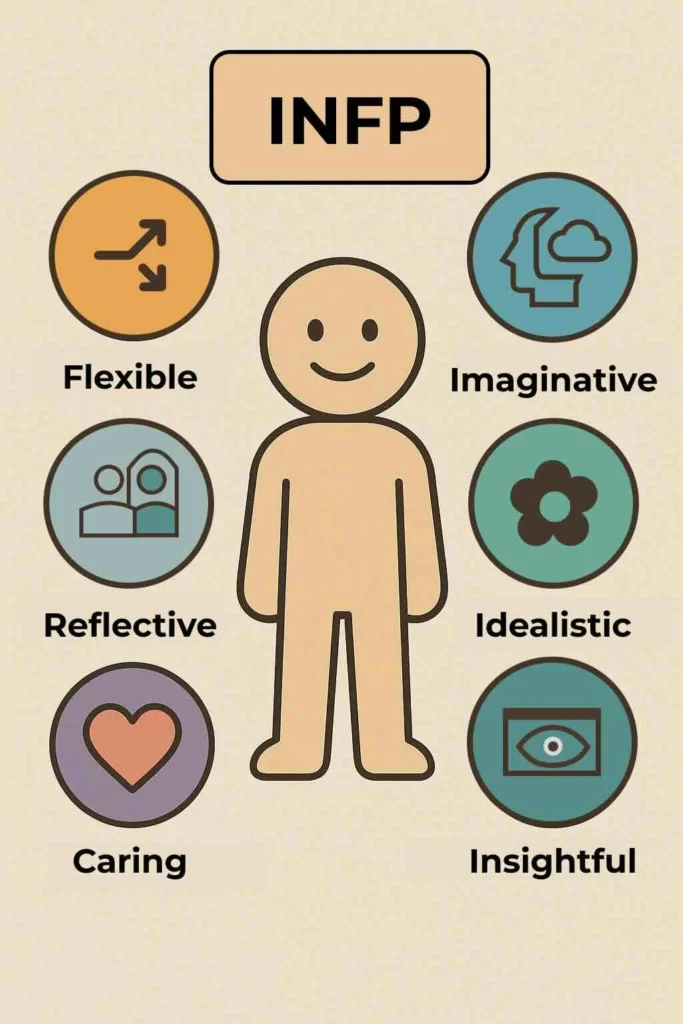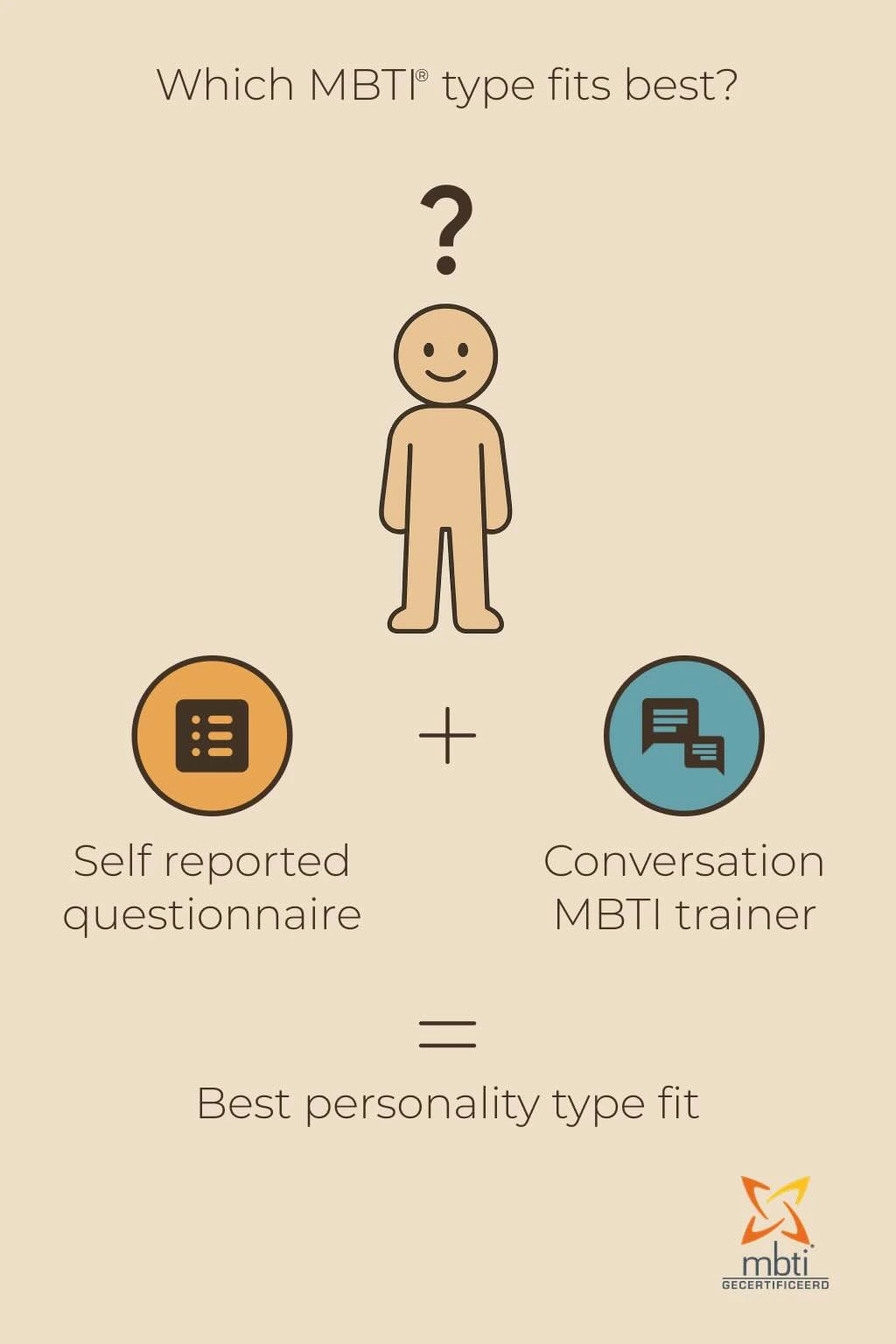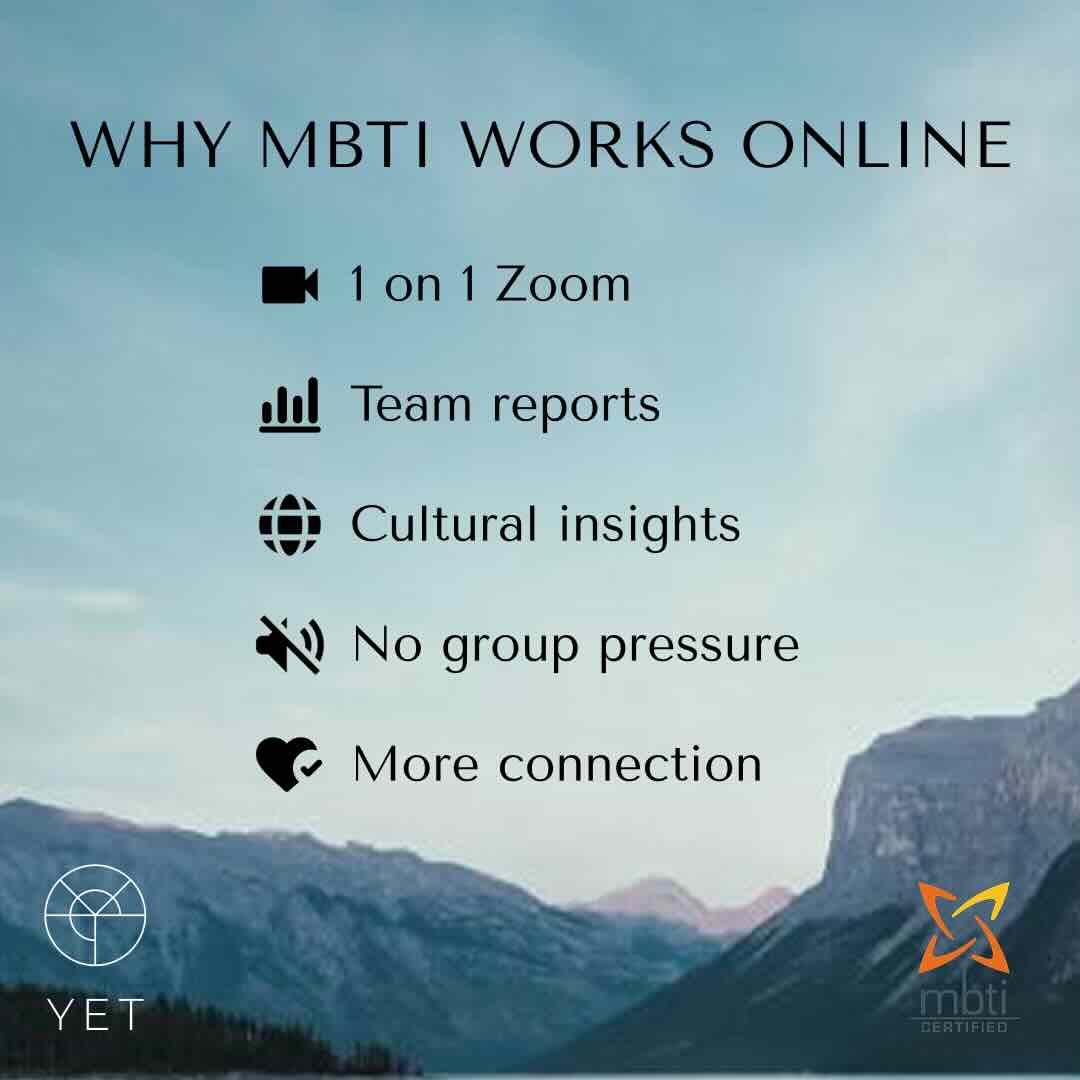INFP Personality: The Thoughtful Idealist
In the MBTI® framework, INFPs are often referred to as “The Thoughtful Idealist” for their deep inner values, creative vision, and empathetic nature. As one of the rarer personality types, INFPs are driven by a desire to make the world a better place, excelling in roles that allow them to express their authenticity and help others. They are defined by their Introverted, Intuitive, Feeling, and Perceiving preferences, which shape their imaginative and compassionate approach to life.
This blog explores the core traits, strengths, challenges, and workplace dynamics of INFPs, helping you better understand this reflective and creative personality type.
Core Traits of INFP personalities
1. Introverted (I):
INFPs recharge through quiet time and introspection. They value meaningful conversations over small talk and often enjoy solitary or one-on-one settings.
2. Intuitive (N):
Focused on possibilities, INFPs explore ideas and meanings beyond the surface. They rely on intuition to see connections and envision creative solutions.
3. Feeling (F):
Guided by personal values, INFPs prioritize empathy and harmony. They make decisions based on how they align with their inner moral compass.
4. Perceiving (P):
Flexible and open-ended, INFPs prefer to keep their options open. They adapt easily to changing circumstances and thrive in unstructured environments.
Strengths of the INFP Personality Type
1. Empathy and Compassion:
INFPs excel at understanding and supporting others, often making them excellent listeners and caring friends.
2. Creativity and Vision:
With their rich imaginations, INFPs bring unique perspectives and innovative ideas to any situation.
3. Integrity and Purpose:
INFPs are deeply motivated by their values, striving to lead authentic lives and contribute to causes they believe in.
4. Adaptability:
Their openness to change allows INFPs to embrace new experiences and perspectives.
5. Dedication to Growth:
INFPs are passionate about self-improvement and often inspire others to grow as well.
Challenges and Growth Areas for INFPs
1. Over idealism:
INFPs can become disheartened when reality doesn’t align with their high ideals.
Growth Tip: Balance idealism with practical steps to achieve goals.
2. Conflict Avoidance:
Preferring harmony, INFPs may shy away from addressing disagreements.
Growth Tip: Practice assertive communication to resolve issues effectively.
3. Overwhelm with Emotions:
Their deep feelings can sometimes lead to emotional exhaustion.
Growth Tip: Develop strategies to manage stress, such as mindfulness or journaling.
4. Indecisiveness:
INFPs may struggle to commit to decisions due to their desire to keep options open.
Growth Tip: Set deadlines to make choices and trust their instincts.
5. Tendency to Overextend:
Driven by their passion, INFPs may take on too much, risking burnout.
Growth Tip: Prioritize tasks and learn to say no when necessary.
INFPs in the Workplace
INFPs thrive in environments that allow them to express their creativity and align with their values. They excel in roles where they can make a difference and connect with others. Ideal career paths for INFPs include:
– Writing and the Arts: Exploring their creativity through storytelling, design, or performance.
– Counseling and Therapy: Supporting others through empathy and understanding.
– Education: Inspiring future generations with their passion for learning and growth.
– Nonprofit Work: Advancing causes close to their heart.
– Creative Marketing: Crafting messages that resonate deeply with audiences.
In team settings, INFPs are valued for their thoughtfulness and ability to mediate conflicts. They bring warmth and a collaborative spirit to group dynamics.
INFPs in Personal Relationships
INFPs are deeply loyal and attentive partners who seek meaningful connections. They thrive in relationships built on mutual understanding, shared values, and emotional depth. While they may appear reserved, their commitment and affection shine through in their actions.
Conclusion: Embracing the INFP Personality
INFPs bring a unique blend of creativity, compassion, and authenticity to their personal and professional lives. By leveraging their strengths and addressing growth areas, INFPs can continue to inspire and uplift others while achieving their own goals.
Read more about the INFP in a cultural context:
Read more about INFP on our Instagram page:
FAQs About the INFP Personality Type
1. What makes INFPs unique?
Their blend of creativity, empathy, and a strong moral compass sets them apart as thoughtful idealists
2. How do INFPs handle stress?
Under stress, INFPs may withdraw to reflect and process their emotions. Activities like meditation or connecting with trusted friends help them regain balance.
3. What hobbies do INFPs enjoy?
INFPs often enjoy artistic pursuits like painting, writing, or music. They also love activities that align with their values, such as volunteering.
4. How can INFPs build better relationships?
Open communication and vulnerability are key. Sharing their dreams and fears helps deepen bonds.
5. What are common misconceptions about INFPs?
Some may see INFPs as overly idealistic, but their vision can drive meaningful change when paired with practical steps.





